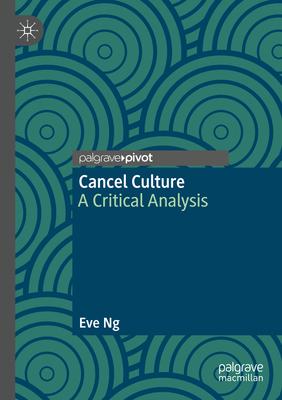"Cancel culture" has become one of the most charged concepts in contemporary culture and politics, but mainstream critiques from both the left and the right provide only snapshots of responses to the phenomenon. Takinga media and cultural studies perspective, this book traces the origins of cancel practices and discourses, and discusses their subsequent evolution within celebrity and fan cultures, consumer culture, and national politics in the U.S. and China. Moving beyond popular press accounts about the latest targets of cancelling or familiar free speech debates, this analysis identifies multiple lineages for both cancelling and criticisms about cancelling, underscoring the various configurations of power associated with "cancel culture" in particular cultural and political contexts.

"Cancel culture" has become one of the most charged concepts in contemporary culture and politics, but mainstream critiques from both the left and the right provide only snapshots of responses to the phenomenon. Takinga media and cultural studies perspective, this book traces the origins of cancel practices and discourses, and discusses their subsequent evolution within celebrity and fan cultures, consumer culture, and national politics in the U.S. and China. Moving beyond popular press accounts about the latest targets of cancelling or familiar free speech debates, this analysis identifies multiple lineages for both cancelling and criticisms about cancelling, underscoring the various configurations of power associated with "cancel culture" in particular cultural and political contexts.